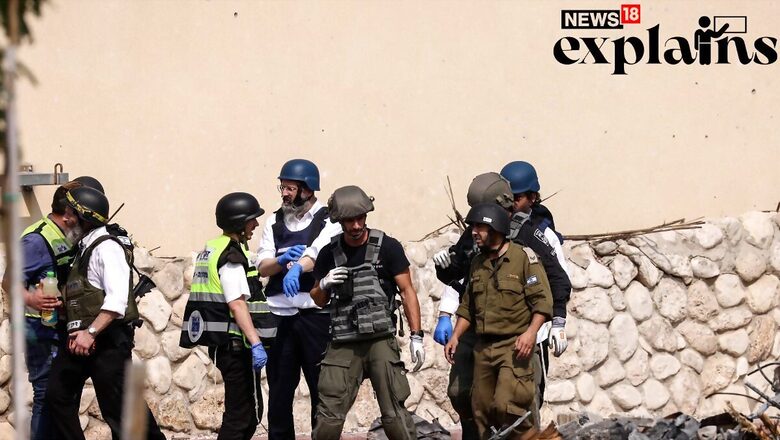
views
Palestinian armed group Hamas on Saturday launched an unprecedented assault on the Israeli territory, leading to over 700 deaths in Israel.
Israel, which has long enjoyed a high-tech military edge in its many conflicts, was shaken to the core by Hamas’s unprecedented ground, air and sea attack during which more than 1,000 militants broke through the border fence Israel had deemed impregnable and swarmed through into nearby Jewish communities.
The lack of preparedness in the military, Israeli domestic intelligence Shin Bet and external spy agency Mossad points to a massive intelligence failure.
Israel’s intelligence services Unaware
Israel boasts of an extensive and well-funded intelligence services in the Middle East. It claims to have informants and agents inside Palestinian militant groups, in Lebanon, Syria and other nations.
Hamas surprise attack surprised many Western intelligence agencies as none of the Israeli intelligence had any inputs that the Palestinian militant group was planning a sophisticated attack, according to a report in The New York Times.
Israel, which has been into decades-long war with Palestinian territories, had set up a network of electronic intercepts, sensors and human informants throughout Gaza, which is about 365 square kilometres of land.
Israel has invested heavily in the past trying to track and block Hamas’s networks, often intercepting shipments of missile components.
However, the Israel’s intelligence didn’t have any clue that the Hamas is preparing a sophisticated attack that required coordinated land, air and sea strikes. The conflict is being compared to another surprise attack by the Palestinian groups- the Yom Kippur war of October 1973.
Failed Israel’s Iron Dome
The Iron Dome, considered among the most advanced defence systems in the word, proved no match for the heavy explosives unleashed by Hamas militants as they burst into Israel.
The Hamas attack on Saturday raised a question on how the million-dollars Iron Dome failed against the barrage of inexpensive but deadly missiles fired by Hamas.
As per reports, the Iron Dome anti-rocket defense system intercepted around 90% of Gaza rockets. Hamas, has for several years now, been trying to find a weakness in the Iron Dome system.
The Palestinian militant group have been successful in doing so by firing multiple rockets in a short span, making it difficult for the weapon system’s interceptors to handle all targets.
According to the report in The New York Times, the Iron Dome has a limited number of Tamir interceptors and reloading the system can take time. Hamas, took advantage of the system’s vulnerabilities and fired over 5,000 rockets were launched in just 20 minutes.
Moreover, military experts suggested that new weapons fired by Hamas could have been harder to intercept and Hamas may have used a new missile system known as Rajum.
Weapons smuggled into Gaza
In order to prepare and carry out such a coordinated and complex attack firing thousands of rockets must have taken extraordinary levels of operational security by Hamas.
The Israelis clearly missed keeping track of the wide variety of Iranian-made rockets and missiles that were fired by Hamas. These rockets were smuggled into Gaza as components and then assembled later.
According to former US intelligence officials, both Israel and Egypt try to monitor and deter Hamas militants from smuggling components from Iran through the Sinai Peninsula in underground tunnels.
However, officials predict that the missile and rocket components might be smuggled through the legal crossings apart from underground and sea routes.
Though Israel uses extensive human networks in Gaza and intercepts electronic communications to generate warnings of potential attacks, this time Hamas fighters avoided discussing the plans over mobile phones or other means that could have been intercepted.




















Comments
0 comment